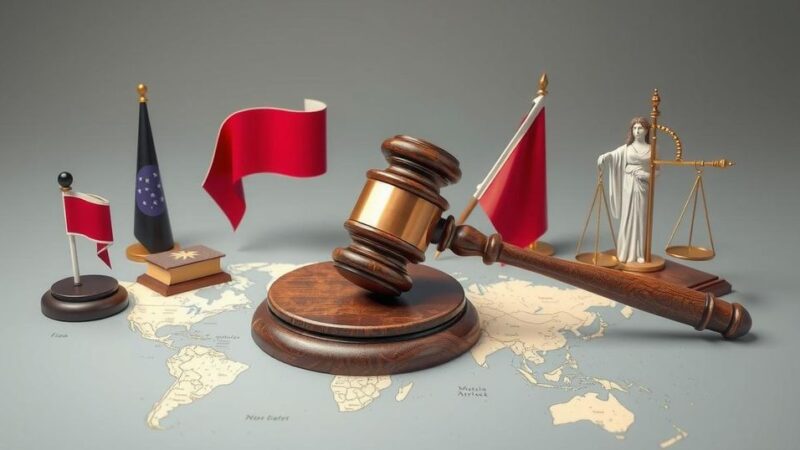South African President Cyril Ramaphosa has proposed a partnership with Nigeria to harness lithium resources for electric vehicle (EV) production. During a recent business roundtable, he emphasized cooperation in infrastructure and industry development, expressed support for Nigeria’s G20 membership, and unveiled plans to activate a Joint Ministerial Advisory Council to enhance trade and investment between the two countries. President Bola Tinubu of Nigeria assured a favorable business environment for South African investors.
President Cyril Ramaphosa of South Africa recently affirmed his nation’s commitment to partner with Nigeria in the exploration and utilization of critical minerals, particularly lithium, essential for advancing the electric vehicle (EV) industry. During the Nigeria-South Africa Business Roundtable held in Cape Town, he highlighted the significance of Nigeria’s vast lithium reserves as a cornerstone for industrial growth in the EV sector. Ramaphosa called upon the private sector and development finance institutions to collaborate in developing infrastructure and enhancing manufacturing capacities within this critical area. He stated that, “We must work together to ensure critical minerals are beneficiated at source,” promoting a shared growth vision between the two nations.
The discussions underscored not only the collaborative potential in the EV sector but also the broader areas of mutual cooperation such as pharmaceuticals. Ramaphosa emphasized South Africa’s comprehensive Just Transition Framework and Investment Plan aimed at attracting massive investments in renewable energy and promoting a green economy. He reiterated the necessary collaboration between both countries to maximize their substantial resources for green industrialization and urged private enterprises to participate actively in these initiatives.
Moreover, Ramaphosa expressed unwavering support for Nigeria’s aspirations to join the G20, recognizing its importance in amplifying Africa’s voice in global economic discussions. He acknowledged the prior advocacy by South Africa for the African Union’s membership in the G20 and stressed the need for this respected club to include more African states to better represent the continent’s interests. Ramaphosa articulated, “We have a voice, we have a presence, and we will be the biggest growth story in years to come.”
Furthermore, the operationalization of the Joint Ministerial Advisory Council on Industry, Trade, and Investment was announced, aiming to enhance economic collaboration between the two leading African economies. Both leaders discussed the imperative to diversify trade relations beyond oil and gas, highlighting South Africa’s significant trade deficit with Nigeria. President Bola Tinubu of Nigeria reassured attendees of his nation’s favorable investment climate and urged for reciprocal opportunities for Nigerian businesses in South Africa, reaffirming the close ties and shared fates of the two nations.
The commitment displayed by both leaders toward enhanced cooperation marks a significant step towards regional economic integration and provides a framework for future collaborative endeavors that could solidify Africa’s position in the global market.
The electric vehicle (EV) sector is increasingly being recognized as pivotal for sustainable development and climate change mitigation. Lithium, a key component in EV batteries, is in high demand due to the global push towards renewable energy and reduced carbon footprints. South Africa and Nigeria, two dominant economies in Africa, possess significant resources necessary for EV manufacturing, thus presenting an opportunity for strategic collaboration. The relationship between the two nations has been deepening with initiatives focused on trade and investment that seek to address existing challenges and promote industrialization.
In conclusion, President Cyril Ramaphosa’s call for collaboration with Nigeria highlights a pivotal opportunity for both nations to leverage their resources in the burgeoning EV sector. The commitment to enhance trade relations, the support for Nigeria’s G20 aspirations, and the operationalization of advisory councils exemplify a strategic approach to mutual growth. Through active engagement and shared ambitions, South Africa and Nigeria are set to strengthen their economic ties, positioning themselves as key players in the global clean energy and industrialization landscape.
Original Source: www.arise.tv







